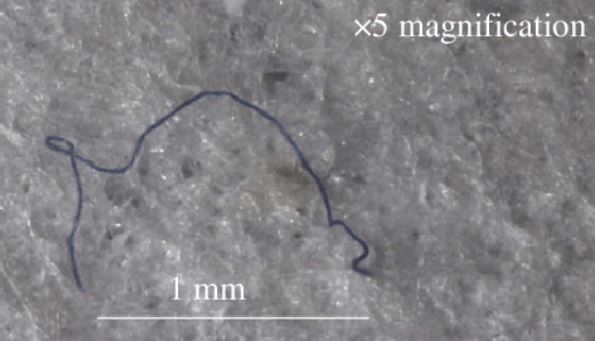Amsterdam, 27 March 2019 – Animals living in the deepest place of the world ingested plastic. The seafloor of the Mariana Trench, between Japan and the Philippines, lies almost eleven kilometres below the surface of the sea. Last year researchers found a plastic bag in the Mariana Trench. And the concentration of plastic particles was the highest, with 335 particles of mainly single-use plastics per square kilometre, at a depth of six kilometres.
Shocking discovery
And now, there has been another shocking discovery. In the deeps of the Mariana Trench lives a species of amphipods (Lysianassoidea amphipod) and marine biologists of Newcastle University, who study marine life in the trenches of the Pacific Ocean, wondered if plastic would be present in these amphipods. The researchers sampled 90 amphipods from the MarianaTrench and five other oceanic trenches.

Photo: Newcastle University
Mainly synthetic fibers
The result is shocking: 72% of the amphipods contained at least one particle of plastic. In the MarianaTrench all the amphipods contained plastic. And 84% of the microplastic fibers originated from synthetic clothing while 16% originated from other microplastics. In the least contaminated trench, the New Hebrides Trench, still half of the sampled amphipods contained plastic. The largest fiber was a few millimetres long, purple, twisted in the shape of an eight, and found in an amphipod barely a few centimetres tall.
This Newcastle University study is the first time proof that even animals living in the deepest locations on Earth ingest microplastics.
Also read: Plastic found in the deepest part of the ocean






